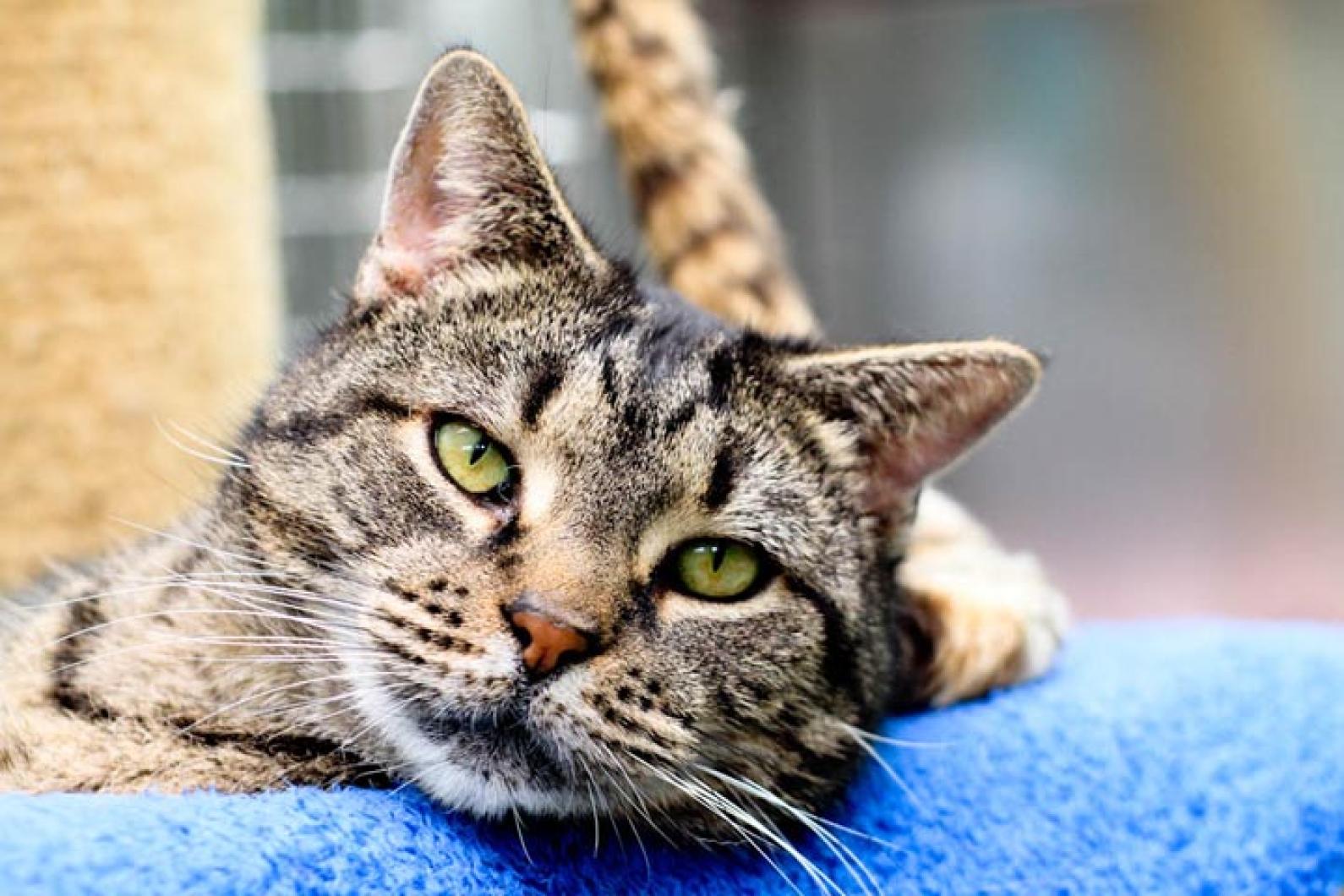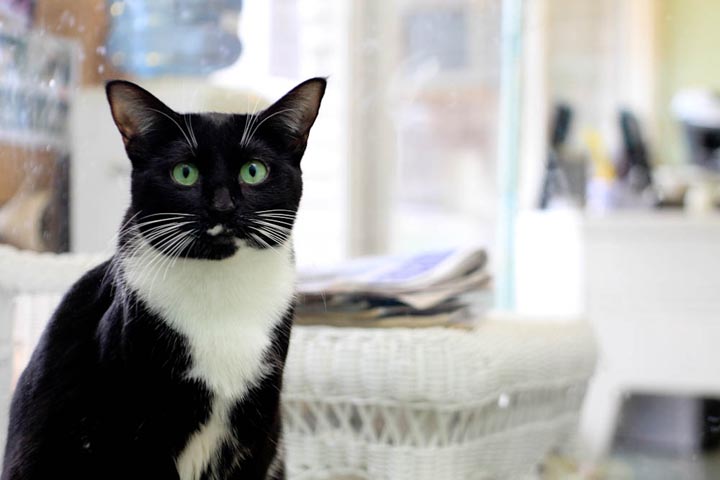On the surface, not much has changed at the Animal Shelter of Martha’s Vineyard in the past few years. The unassuming building on Pennywise Path in Edgartown still draws Vineyarders old and young searching for the perfect new friend. Inside, shelves of pet care books line one side of the front office, next to a stand of colorful collars and leashes. Cats, the most common temporary residents of the shelter, snooze in blanket-lined baskets in one room, while dogs lounge in their own area across the building. The occasional rabbit or guinea pig makes an appearance.
It’s a scene that has continued uninterrupted despite recent shuffling of shelter ownership, thanks to exceptional — even by Vineyard standards — community support, a determined committee of organizers, and the aid of Dukes County. And thanks to the shelter’s new designation as an independent 501(c)(3) nonprofit organization, granted on Jan. 1 this year, it is one that will continue well into the future.
“It’s a success,” Dukes County manager Russell Smith summed up in a telephone interview.
In February of 2009, the Massachusetts Society for the Prevention of Cruelty to Animals, which had operated the shelter since 1947, withdrew funding from the Island shelter, citing among other reasons high operating costs and a 25 per cent loss in MSPCA endowment money in 2008. The Vineyard shelter was one of three Massachusetts shelters to lose funding in 2009 (the MSPCA shelter on Nantucket closed at the end of 2011).
The announcement prompted immediate action from Islanders.
“The community here is unbelievable,” current shelter manager Lisa Hayes told the Gazette. “They would have nothing to do with the shelter closing.”
“There’s a great need [for the services],” she said. “It’s not only [caring for] strays, it’s people losing their housing and their jobs, and they just can’t bring their animals with them.”
In order for the facility to remain open, it needed three things: a management team, a building and operating funds. Dukes Country provided the former, handling the books and bills of the shelter after a request from the All-Island selectmen’s association. The MSPCA, still willing to help the cause despite being unable to fund it, provided the building, offering an annual open-ended lease for a dollar a year (the Pennywise Path land was originally donated by the late Kitty Foote, who specified it be used for the care of animals on Martha’s Vineyard).
Funding came entirely from community donations.
“It was done with the county managing,” said Mr. Smith, “But no public money was spent . . . it was all fund-raising.”
Each animal that comes through the shelter receives approximately $200 of medical care, said Mr. Smith, including vaccinations and spaying or neutering. Mrs. Hayes estimated that 375 animals were cared for by the shelter from 2009, when the facility first lost funding, to the end of the last year (when the shelter re-opened under the auspices of Dukes County, it also became a no-kill shelter, a designation that is still in place). In addition to the medical expenses, funds were needed for the salaries of Mrs. Hayes and assistant manager Gordon Healy, as well as for basic building needs such as heating and electricity.
Initially, contributions were to be made from each of the Island towns to cover any deficits in operating costs. The continuous fund-raising efforts, however, carried the shelter through the next three years.
With the need for the shelter established and a temporary solution for management set in place, steps were put in motion to transition the facility back to a stand-alone organization, via 501(c)(3) status. The shelter had to become a corporation—specifically, a nonprofit. Gail Croteau of Edgartown took on the responsibility of being president of the fledgling corporation, while Duncan Ross became chairman of the board of directors.
The process took about a year. Organizations receiving 501(c)(3) status from the federal government are able to offer tax deductions for those who make charitable contributions; for this reason, the government must determine that the corporation is “legitimate” in its mission, Mrs. Croteau told the Gazette.
“We now have become a Martha’s Vineyard organization,” she said, lauding the work of Mrs. Hayes, Mr. Healy and the many volunteers who contributed to the cause, as well as the county administration for stepping in when needed.
“It’s been very, very fulfilling,” Mrs. Croteau continued. “It’s nice to know that what you’re doing is making a difference. Going forward I feel comfortable . . . that we will be able to maintain not only the building, but also all of the services we provide.”
Mr. Smith agreed. “We’re proud that it worked out well,” he said, citing the shelter story as a case of regional management done just right.
And the sleeping cats in their baskets can rest a bit more comfortably.











Comments
Comment policy »